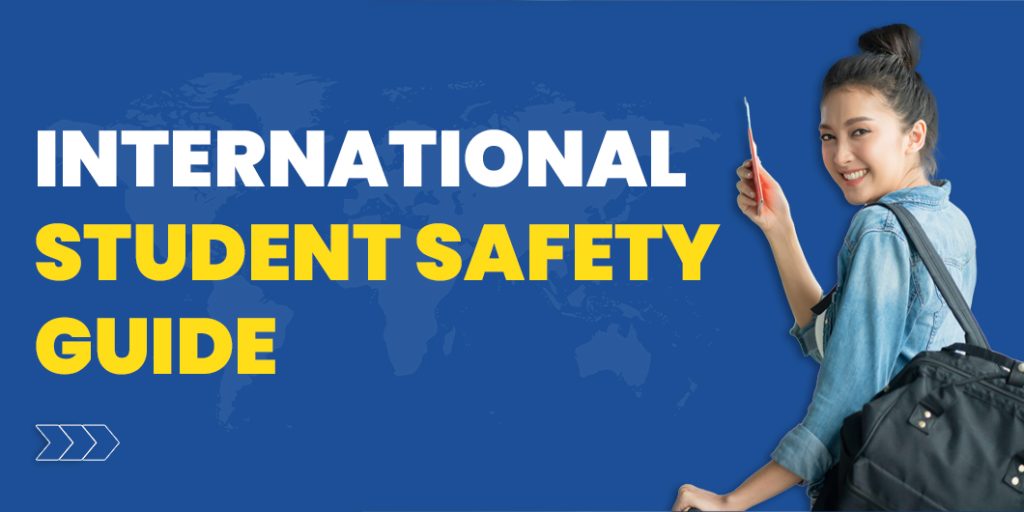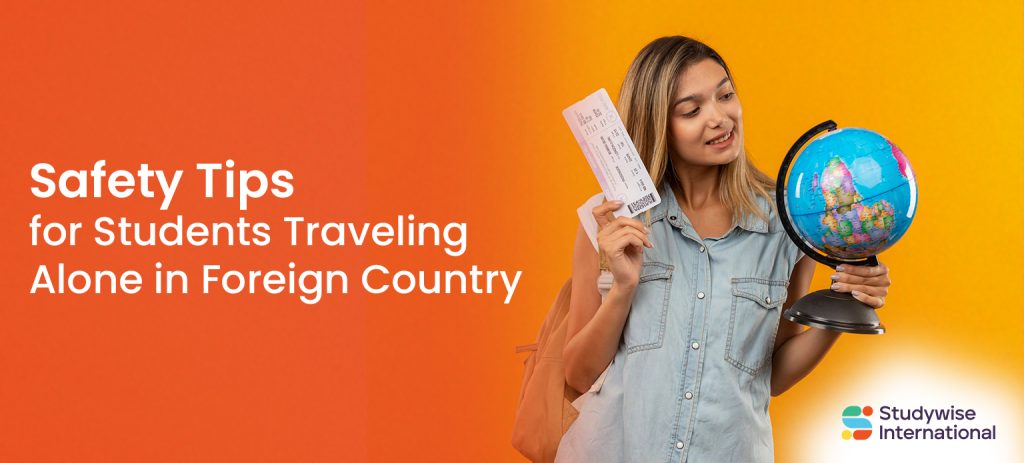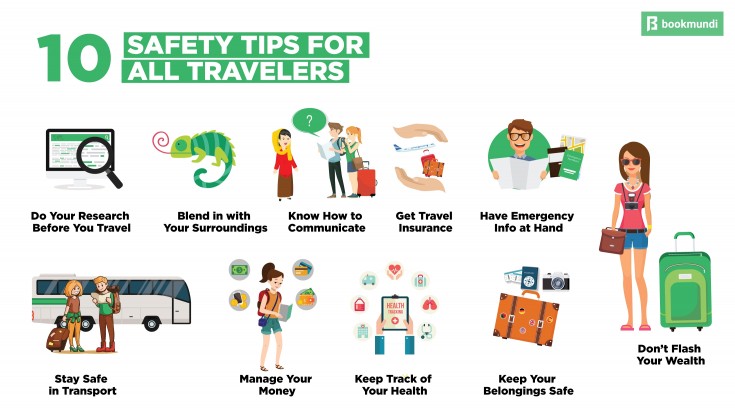Safety Tips for Traveling as an International Student: A Complete 2026 Guide
Traveling as an international student is one of the most exciting parts of studying abroad. Exploring new cities, experiencing different cultures, and building lifelong memories is truly rewarding. But traveling in a foreign country also comes with risks, and safety should always be a priority. Whether you’re planning weekend trips, long vacations, or study-related excursions, being prepared can make all the difference.
In this guide, we’ll cover essential safety tips for traveling as an international student, including personal safety, transportation, health, cultural awareness, and emergency planning.

1. Prioritize Personal Safety
Your first priority while traveling should always be your personal safety.
Stay Aware of Your Surroundings
- Avoid distractions like constantly checking your phone while walking.
- Keep an eye on the people and activities around you, especially in crowded areas.
Secure Your Belongings
- Use anti-theft backpacks or bags with lockable zippers.
- Carry only what you need, and avoid displaying valuables like expensive jewelry or electronics.
- Keep important documents (passport, visa, travel insurance) in a safe place—preferably a money belt or travel pouch.
Trust Your Instincts
- If a situation or location feels unsafe, leave immediately.
- Avoid secluded areas at night, especially if you’re alone.
Use Reliable Accommodation
- Choose hostels, hotels, or rentals with verified reviews.
- Prefer accommodations with 24/7 security, locks on doors, and safe access to rooms.
Tip: A personal safety app like bSafe or Noonlight can provide peace of mind and quick access to emergency services.
2. Plan Your Travel in Advance
Planning is key to staying safe while traveling abroad.
Research Your Destination
- Learn about local customs, laws, and areas to avoid.
- Identify safe neighborhoods, public transport options, and reliable restaurants.
- Check travel advisories from your government for updated safety information.
Book Reliable Transportation
- Use reputable taxi services or ride-hailing apps like Uber, Bolt, or Grab.
- For trains or buses, purchase tickets from official vendors to avoid scams.
- Always have a backup plan for transportation if your primary option becomes unavailable.
Keep Family and Friends Informed
- Share your travel itinerary with family or friends.
- Regularly update them on your location, especially when visiting unfamiliar areas.
Tip: Keep digital copies of your passport, visa, insurance, and important contacts in a secure cloud storage app.
3. Practice Health and Hygiene Safety
Staying healthy is crucial while traveling. Illnesses or injuries in a foreign country can quickly turn a trip stressful.
Get Vaccinated
- Ensure you’re up to date on routine vaccines and any recommended for your travel destination.
Carry a First Aid Kit
- Include bandages, antiseptics, medications for common illnesses, and any prescription medications.
Stay Hydrated and Eat Safely
- Drink bottled or filtered water if local water is unsafe.
- Avoid street food that looks unhygienic or is unfamiliar without research.
Travel Insurance
- Invest in comprehensive travel insurance covering medical emergencies, theft, and trip cancellations.
Tip: Download telemedicine apps like Babylon or Ada Health to get advice on minor health issues without visiting a clinic.
4. Be Financially Safe
Handling money responsibly while traveling reduces the risk of theft or fraud.
Use Cards and Digital Payments
- Avoid carrying large amounts of cash.
- Use credit/debit cards or digital wallets for safer transactions.
Be Cautious with ATMs
- Use ATMs inside banks or trusted locations.
- Cover your PIN when entering it and avoid withdrawing money at night or in isolated areas.
Keep Emergency Cash Separate
- Store some emergency cash in a hidden location in case of loss or theft.
Tip: Apps like Revolut or Wise help manage multiple currencies safely and reduce the need to carry cash.
5. Travel with a Buddy or Group
There is safety in numbers.
Avoid Traveling Alone at Night
- Plan group travel, especially to unfamiliar areas or for nightlife.
Stick Together
- Maintain visual contact with friends in crowded places or during public transport.
- Use a buddy system to ensure no one gets lost.
Share Location
- Use apps like Google Maps or WhatsApp to share real-time location with friends or family.
Tip: Even if you enjoy solo travel, stay in populated areas and keep someone informed of your plans.

6. Stay Connected and Accessible
Communication is vital when traveling.
Local SIM Card or Roaming
- Purchase a local SIM card for internet access and emergency calls.
- Check international roaming plans if you prefer to keep your home number active.
Emergency Contacts
- Keep a list of local emergency numbers: police, fire, medical services.
- Include your embassy or consulate contact details.
Stay Socially Aware
- Know local laws regarding public behavior, alcohol consumption, or photography.
- Avoid arguments or confrontations in unfamiliar settings.
7. Use Technology to Your Advantage
In 2026, apps and digital tools can greatly enhance your travel safety.
Navigation Apps
- Google Maps or Citymapper help you plan safe routes and avoid dangerous neighborhoods.
Safety Apps
- Apps like bSafe, Noonlight, or local police apps allow quick alerts in emergencies.
Travel Advisory Apps
- Apps like TravelSmart or government travel advisory apps provide updates on safety, weather, and health alerts.
Language Apps
- Use translation apps like Google Translate to navigate local signage or communicate in emergencies.
8. Avoid Common Travel Scams
Scammers often target tourists, including students.
Recognize Common Scams
- Fake taxi drivers asking for exorbitant fees.
- Street vendors overcharging or selling counterfeit goods.
- Pickpocketing in crowded areas or public transport.
Trust Official Sources
- Buy tickets from official sources or apps.
- Avoid unsolicited offers or deals that seem too good to be true.
Keep Valuables Secure
- Use money belts or crossbody bags with secure zippers.
- Keep passports, credit cards, and electronics close to your body.
9. Respect Local Customs and Laws
Adapting to local culture isn’t just polite—it’s also a safety measure.
Dress Appropriately
- Learn local norms regarding clothing, especially in religious or conservative areas.
Understand Social Etiquette
- Observe how locals greet each other, interact in public, and follow rules.
Avoid Sensitive Topics
- Politics, religion, or controversial subjects can provoke conflict in some countries.
Tip: Research local customs before traveling. Even small gestures like bowing, removing shoes, or using polite phrases can prevent misunderstandings.
10. Plan for Emergencies
Preparation is key to handling unexpected situations safely.
Emergency Kit
- Include essential medications, copies of documents, a flashlight, and a portable charger.
Know Local Hospitals
- Identify hospitals or clinics near your accommodation.
- Check if your travel insurance covers these facilities.
Have a Backup Plan
- Know how to return to your accommodation quickly.
- Have a list of contacts for student services, consulates, or local friends.
Stay Calm in Crises
- Panic can worsen emergencies. Take a deep breath, assess the situation, and act logically.

Bonus Tips for Traveling Safely in 2026
- Blend In: Avoid looking like a tourist by dressing appropriately and limiting flashy items.
- Learn Basic Local Phrases: Knowing “help,” “police,” or “hospital” in the local language can save crucial time.
- Travel Insurance: Always confirm coverage for medical emergencies, theft, or trip cancellations.
- Stay Updated: Follow local news and weather apps to avoid unrest or natural disasters.
- Use Trusted Reviews: Platforms like TripAdvisor or Booking.com help avoid unsafe accommodations or services.
Conclusion
Traveling as an international student is an unforgettable adventure—but it comes with responsibilities. By prioritizing personal safety, planning ahead, staying connected, respecting local laws, and using technology wisely, you can minimize risks and enjoy your journey with confidence.